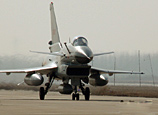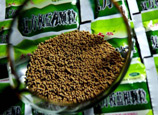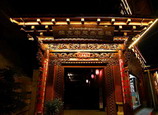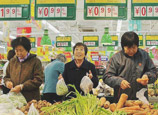
Performance boosts confidence of achieving 2013 trade growth goal
China's imports registered an unexpected increase in March, which trade officials attributed to stronger domestic demand.
Exports grew 10 percent year-on-year in March to $182.19 billion despite still weak global demand, a performance that boosted officials' confidence they can achieve the 2013 trade growth target of 8 percent.
Imports in March rose 14.1 percent from a year earlier to $183.07 billion, the highest in more than 10 years, the General Administration of Customs said on Wednesday.
China's overall trade gained 12.1 percent year-on-year with an unexpected trade deficit of $880 million, the first in more than a year.
"The better-than-forecast imports signal the unleashing of domestic demand, and China's economic growth will significantly pick up from the second quarter," said Chen Hufei, a researcher at Bank of Communications.
"Imports will keep expanding this year as the government rebalances foreign trade, and the trade surplus is likely to narrow," Chen said.
China's growth rate hit a 13-year low of 7.8 percent in 2012, but signs of recovery have been seen since the fourth quarter.
"Favorable policies of stabilizing foreign trade, introduced by the central government since the second half of last year, keep delivering positive effects, which is the major driver for the steady trade growth in the first quarter," customs spokesman Zheng Yuesheng said at a news briefing on Wednesday.
"The recovery of China's economic growth has been strengthened amid positive numbers for factory production in recent months. Exporters' confidence is also improving as enhanced productivity partly offsets the rise in costs," he added.
Robust export growth in recent months was likely inflated by overseas hot money entering China disguised as trade, said a research note from Yao Weixiao and Sheng Xu, analysts at Lianxun Securities.
Yang Liqiang, a researcher at the University of International Business and Economics, said China's trade restructuring and industrial upgrading added force to the surge in exports, in addition to the boost from the improving US market.
Li Yiming, chairman of Shanghai Zhengzhang Import and Export, which owns design and sales departments in Shanghai as well as production lines inland, said, "Importing more high-end materials and products from overseas turned out to be essential for standing out in the domestic market, which we've focused on since last year."
Li added that the company is setting up more-convenient trading procedures with overseas business partners to export high-end products.
More enterprises are focusing on manufacturing personalized products to certain groups of middle-class consumers instead of receiving a large number of orders to meet the lower-class market demand, said Zheng Chen'ai, chairman of Zhejiang Aobenni Garment Group.
"Although statistics showed that the export sector is getting better, we haven't seen a sharp increase in the number of orders coming yet," Zheng said.
China's trade with the US, the country's biggest export market in 2012, surged 10.8 percent year-on-year in the first quarter while bilateral trade with ASEAN economies jumped 15.5 percent. Trade with the EU, China's biggest trade partner, declined 1.9 percent year-on-year in the first quarter and that with Japan, China's fifth-largest trade partner, dived 10.7 percent.
"Japan accounts for 7.3 percent of China's total foreign trade but bilateral trade has been declining since June owing to Japan's easing monetary measures, which weakened the competitive edge of Chinese exports," customs spokesman Zheng Yuesheng said.
"The import of raw materials from Japan, which are used in China's processing trade, have dropped significantly since the second half of last year amid disputes over the (Diaoyu) islands," he said.
Chinese exporters, especially small and medium-sized enterprises, are challenged by rising operational costs, yuan appreciation, financing difficulties and weak global demand.
Lackluster global trade and rising probes targeting China are also taking their toll on Chinese trade, Zheng Yuesheng said.
But "China's trade this year will be slightly better than 2012, and I'm confident about achieving the 8 percent growth target", he said.


















![]()
